ABLAZE



ore than a decade ago, when ACU began to grow rapidly on its old campus, I met with some student leaders to discuss their hopes and dreams for their college experience.
“President Munsil,” one leader said, “it’s been great having all these new students on campus. But I’m worried if we get much larger than 500 students, we will lose the special small college feeling of community that we all love.” Other students murmured support.
This fall ACU welcomed its largest enrollment ever, with nearly 1,100 students in our traditional campus student population. (With online, graduate and dual enrollment, ACU has more than 1,400 total students.)
Last year, when I met with student leaders, I heard exactly the same thing! With more than twice as many campus students compared to the first time this issue came up, I was asked again – “If we keep growing, how can we maintain the small college sense of community that we love?”
The short answer is this -- as we have demonstrated over the past decade, when we grow enrollment without compromising spiritual, missional and academic standards – we can maintain a sense of community and connectedness.
We have kept class sizes small and doubled down on our commitment to student success, while expanding discipleship and leadership opportunities and increasing student activities on campus. All of that will continue and expand as we grow.
But the main reason students love our community is because our students, faculty and staff are all committed to being followers of Jesus – and we are committed to remaining a covenantal community of believers, no matter how large we grow.
With the rapid growth and change ACU has experienced, I thought it would be important to set forth for our community where ACU is headed … and why.
I have told our community for years that continued growth is both a financial and missional imperative.
If you follow what’s happening in higher education at all, you understand the financial challenges for small colleges. Colleges and universities with under 1,000 students are in particular danger of closing. According to the Wall Street Journal, more than 500 four-year nonprofit colleges closed in the past decade – and many were small Christian colleges.
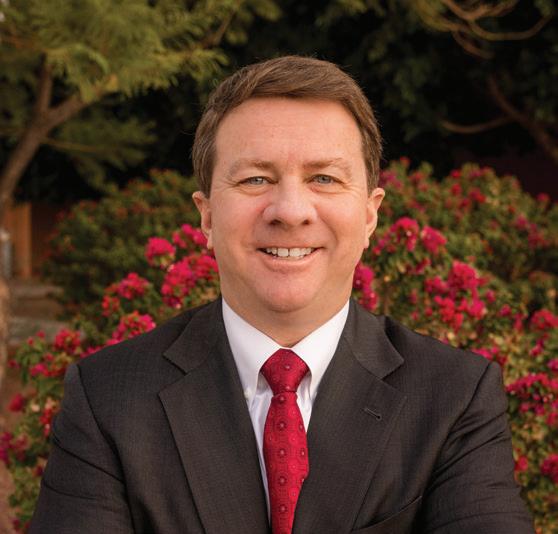
As a small Bible college during its first 50 years, Southwestern College/ACU had few alumni, no endowment and limited support from outside donors. Only by God’s miraculous intervention – and sacrificial gifts of more than $75 million since 2011 – was ACU able to survive and keep growing during those years as a tiny college on Cactus Road.
In fact, ACU’s move to a much larger campus – another miracle of God’s provision – was absolutely vital for us to rise above 1,000 students to where we are today, with a promising and sustainable future.
But our primary motivation for continued growth – the reason we do what we do -- is missional. ACU is one of a very few biblically-based, theologically and culturally conservative Christian colleges in America – and our nation and the world need more of our graduates.
We are watching as our graduates lead churches, enter the mission field, do family counseling, start businesses and nonprofits, become teachers, attend top seminaries, medical schools and law schools, become reporters, and start families – after receiving an education grounded in how to apply a biblical worldview not only to their vocation, but also to their lives.
These graduates will seed every area of influence in our culture, providing needed, biblically-based leadership that will enable individuals and communities to flourish. And because we draw students from 40 states and 30 countries – that leadership will influence the nation and the world. This spring, we will send out our largest class ever of nearly 250 graduates!
Now we will continue growing toward our next target of 2,000 students – the capacity this campus was built for. And in 2025 we will undertake a comprehensive master plan process to help us chart our next steps for campus expansion.
The future is bright for ACU, now the 9th-fastest growing baccalaureate university in the country according to The Chronicles of Higher Education. I believe God will continue to bless our students and our community with greater and greater Kingdom influence – so long as we remain committed to our conservative, biblical mission and vision.
Yours for equipping Christian leaders,

Len Munsil, B.S., J.D. President Arizona Christian University

The ABLAZE magazine is published by the Department of University Advancement. This publication is released biannually and distributed in autumn and spring. If this publication was shared with you and you would like to receive your own copy, go to https://www.arizonachristian.edu/ablaze to join our mailing list.
Arizona Christian University provides a biblically integrated, liberal arts education equipping graduates to serve the Lord Jesus Christ in all aspects of life, as leaders of influence and excellence.
ACU baseball celebrates it’s win over University of British Columbia, earning a trip to the 2024 NAIA College World Series.
Send address changes to: Department of University Advancement 1 W. Firestorm Way Glendale, AZ 85306 advancement@arizonachristian.edu https://www.arizonachristian.edu
In a world where sports often prioritize victory at any cost, ACU baseball coach Joe McDonald is blazing his own trail with a unique approach that focuses on faith, relationships, and personal growth. His coaching philosophy for ACU, which he dubbed “WIN FOREVER UNIVERSITY,” is transforming the lives of his players and leading with an eternal perspective, proving that the true measure of success extends far beyond the baseball diamond.
To many, Coach McDonald’s approach might seem counterintuitive, but the results speak for themselves. Not
only is the ACU baseball program changing lives and developing Christian leaders, but his teams have been achieving historic results on the field as well.
Prior to McDonald’s arrival in 2019, the ACU baseball program experienced just three winning seasons in eight years. But since he and his hand-picked group of assistant coaches arrived, the team has won about 30 games every year, averaging nearly twice as many wins as losses. And last spring, ACU made a deep run at the NAIA World Series, finishing in the top five in the nation.
Coach McDonald’s winning formula is based on three foundations.
“The first foundation,” he states, “is our commitment to relationships – starting with a personal and vital relationship with Jesus Christ, then healthy relationships with family and positive relationships with our brothers in the baseball program in that order.” As he explains “Family is my purpose and mission, and the ACU baseball team is an extended family for each student athlete.”
“The second foundation,” he continues, “is academic success and
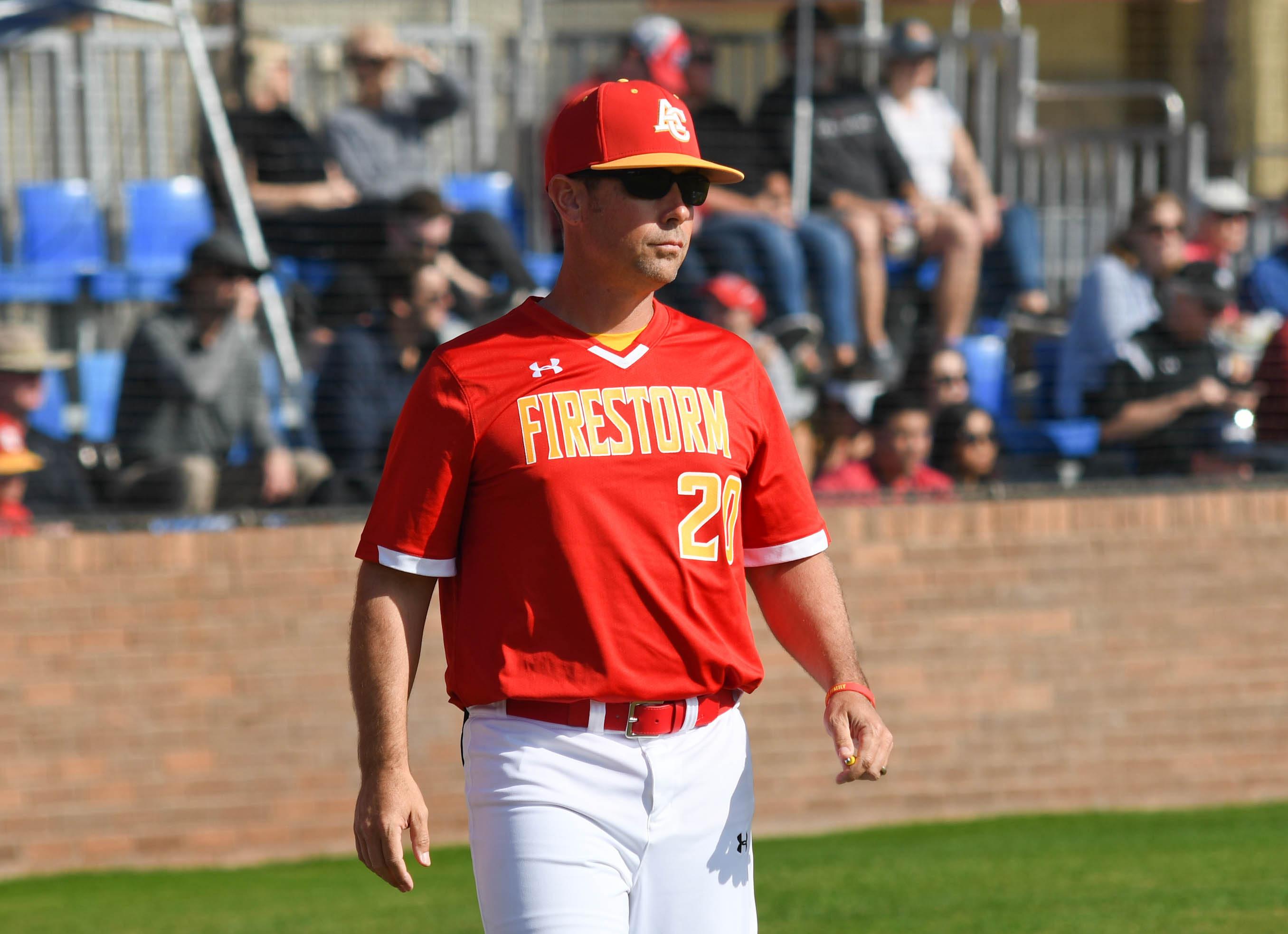

graduation.” As evidence, Coach McDonald points to the fact that the ACU baseball program has been named an NAIA Scholar Team for six out of the seven years he has led the program, and in 2020 was recognized as the number two team in the country with an average player GPA of 3.49.
“As for the third foundation,” he says with a smile, “we get to play that fun game called baseball.”
These foundations are the core of what Coach McDonald and his coaches and players call WIN FOREVER UNIVERSITY.
“I want our players to look back and see the transformation that occurred in their lives off the field” explains McDonald, “and to equip them to be good husbands, fathers and disciples for Christ. That’s the foundation of our Win Forever culture.”
“That’s what separates ACU baseball from other schools,” he continues, noting that he views baseball as a platform to speak into the lives of coaches, players, and their friends and families. “Personal growth is what we are looking for. With our WIN FOREVER program, we work on the person, and we get to play
baseball while we’re doing it.”
The ACU baseball program is unique in the landscape of college athletics in other ways as well. Prior to each game, the team holds a player-led chapel. Members of the opposing team are always invited, and often the entire opposing team attends. During each pregame chapel the Gospel message is proclaimed, and each year hundreds of student athletes from other universities make a firsttime or recommitment to Christ as their Savior. Last season, during a Good Friday three-team tournament, ACU Transformational Coach Randy Chambers led the pregame chapel and shared the Gospel. That day more than 50 players and family members from the two visiting teams accepted Jesus Christ as their Savior. “There have been so many stories of
ONE PARTICULAR STORY STANDS OUT TO COACH MCDONALD WHEN HE REFLECTS ON WHAT MAKES ACU BASEBALL DIFFERENT.
transformation during my six years at ACU. But in my 30 years of coaching,” he continued, “one of my most proud moments was in 2021. We were
playing several games against San Diego Christian College (SDCC) in Balboa Park. During one of those games, something occurred that I had never experienced as a player or coach.”
Following a crushing conference loss where SDCC hit a walk-off homerun in the bottom of the ninth inning to win the game, Coach McDonald and his assistant coaches walked back to the team bus, trying to process the loss and prepare mentally for the long drive across the desert back to Arizona.
“I arrived at the bus surprised to find we were alone,” McDonald recalls. “None of my players were there.”
A woman approached him and solved the mystery. She explained his players had taken their box lunches and were traversing Balboa Park, sharing food with the homeless. And sure enough, McDonald and his assistant coaches turned the corner and found the entire team in groups of two and three spread out across the park, feeding and praying with the members of the homeless community.
There’s something else that makes Joe McDonald different from just
about every other baseball coach. And it’s not something he would have chosen.
Early in his marriage to his wife Pam and after several miscarriages, their daughter Paislee was born six weeks early. They call her their “miracle child.” But on the morning of Paislee’s birth, the doctor approached an expectant Joe and said, “Congratulations, you’re going to have your baby today, but your wife is not going to make it.”
“He told only me. I couldn’t bring myself to tell Pam or her family,” Joe remembers. “For more than three hours, I thought I was going to lose Pam.”
Against all odds, Pam did make it. But for her safety, the McDonalds would never attempt to have another biological child.
Having more children remained their
top priority, however, and when they learned about the thousands of children in Arizona who needed a family, they decided their personal ministry was to grow their family through adoption.
They went on to adopt their son Montgomery at two days old, and then adopted their daughter Liliana at nine months old, their son Kayden at 14 months old, and finally daughter Jaysa at 12 years old. Jaysa is now a freshman at ACU, majoring in Interdisciplinary Studies with an emphasis in Behavioral Health and Criminal Justice.
The McDonalds’ commitment to adoption didn’t stop with their own family. Joe, Pam and their children with the help of ACU’s baseball coaches and players select dozens of foster kids and care for them at Christmas, Easter and other times during the year. Together they gather and distribute hundreds of gift
baskets, school supplies and clothing to children in need. As part of those gift baskets and supplies, they always include the gospel message.
Nothing about Joe McDonald seems typical or ordinary. Not his approach to baseball, or his family, or his calling.
Everything he does is with an eternal perspective.
Editor’s Note: Early in 2021 Pam was diagnosed with Multiple Myeloma, a serious cancer of the blood and bones. After seven months of chemo and radiation treatment, and a stem cell transplant, she was given a very low chance of survival. But God has continued to move in the McDonald family, and Pam just celebrated her third “birthday” since treatment began. They consider her remission a miracle of the Lord’s work.

he following are excerpts from A Tale of Two Seasons: One Man’s Basketball Journey and His Love for the Game by Naismith Basketball Hall-of-Famer Paul Westphal. It is available now at www. ATaleofTwoSeasons.com and wherever books are sold.
Published posthumously by Arizona Christian University Press in partnership with End Game Press, A Tale of Two Seasons contrasts two very different years out of Westphal’s five decades in professional basketball. One season covers his time as the head coach of the NBA Seattle SuperSonics, while the other offers insight into his first college coaching job at Southwestern College (now Arizona Christian University). One paid the highest salary he had ever earned, while the other paid him nothing. Yet, that one special season with Southwestern is the season he said was his best year in basketball.
In A Tale of Two Seasons , Paul’s stories about life and basketball, both as a player and a coach, are intertwined with humor, insight, hindsight, and his genuine love for the game. He is remembered for many things—a fivetime NBA All Star and four-time All-NBA, a 1974 champion with the Celtics and a clutch player for the Phoenix Suns, and as a Hall of Fame coach. But it might be surprising to think of Paul as an author. This excerpt begins with his wife, Cindy, as she tells the story of how the book came to be.
Paul said he thought he might write a book someday. He had witnessed the League and the game itself change so much since the day he was drafted by the Boston Celtics in ‘72. Team camaraderie was disappearing, replaced by friends who’d travel on their own to road games to hang out instead of players building relationships with their teammates. Plays seemed more “canned” and less creative. Slower. Even boring.
Paul was the consummate

gamesman. If a game wasn’t fun, he didn’t see any reason to play. Though he enjoyed many fun seasons as a player and a coach, one stands out as especially fun because of its innocence and everyone’s respect for
one another. The other stands out like, as he often would put it, going to the dentist for a root canal every day. Not fun at all.
Paul’s hindsight comparison between
these two teams kept racing in his mind. He sat weeks on end at his computer for hours till he’d put it on the shelf for a few months, before returning to it refreshed, another chapter in the works. Then again, he’d put it aside for maybe a year till there were more chapters to add. And so, it went for a few decades.
Paul finished writing less than a year before he was diagnosed with glioblastoma, his dream of having his book published never realized. After he passed, our daughter, Tori, and I found the manuscript exactly where he left it … “on the shelf.” It became our passion to see it through in his honor. We laughed and we cried as we could hear his voice while reading aloud to one another. We hope, dear reader, that you have too.
Paul was an avid golfer—and as in every competitive setting, he dedicated himself to being the best he could be.
In this excerpt from A Tale of Two Seasons, he shares how taking golf lessons shortly after he retired from the NBA in the mid-1980s opened the door to his first coaching job—at Southwestern College.
If I was that bad at golf in 1995, it’s easy to imagine how badly I must have needed lessons when I retired from playing NBA basketball ten years earlier. My instructor, Paul Purtzer, was the first to realize (excluding Cindy, of course) that golf was not my future. Unbeknownst to me, he made a call to another of his hopeless golf students, Keith Province, and presented him with an idea.
Paul gave Keith my number. When
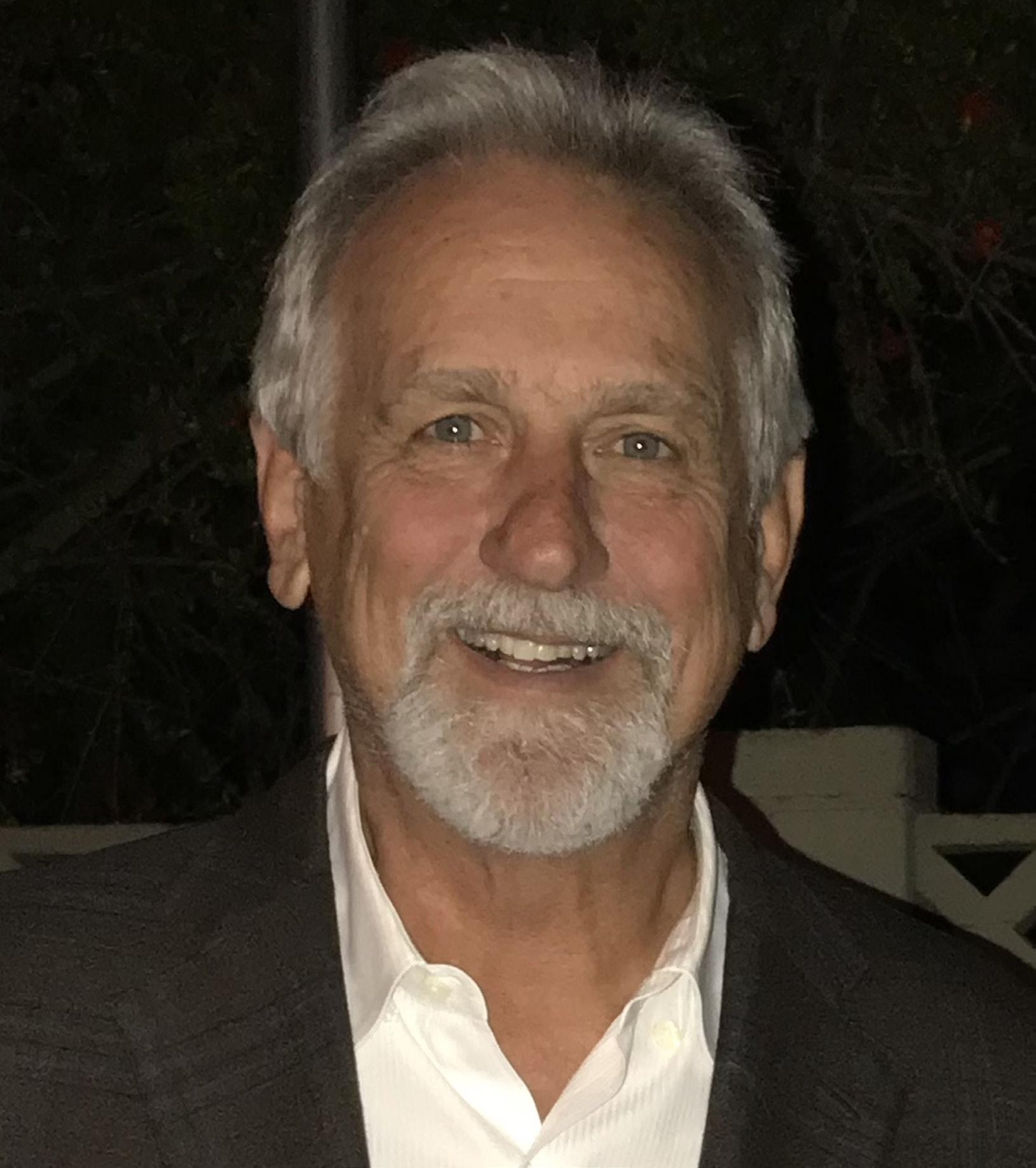
I answered his call, he took a mysterious approach to reel me in. “Hi, Paul. You don’t know me, but we share the same golf pro. Purtz suggested I call you because you are looking for a coaching job, and I have one for you!”
“Really? What job?”
“I’d like to tell you in person. Can we meet for lunch?”
I couldn’t even weasel a hint out of him, so I agreed to meet him at El Chorro Lodge. Chicken-fried steak with chocolate icebox pie for dessert would hedge my bet if Keith’s offer proved to be a waste of time.
After we had taken our place on the retro patio of one of my favorite spots in the Valley of the Sun, Keith started his pitch. “I want to offer you my job.”
“What do you mean, ‘your job’?”
“I mean, I’m the basketball coach at Southwestern Conservative Baptist Bible College, and I’d like for you to take over my position there. It doesn’t pay enough for me to make a living, but the school’s president won’t let me quit unless I find a replacement. Preferably one who doesn’t need to get paid. I can stay on as your assistant, if you like, as long as you don’t mind if I’m not around much. I can help you get some players and attend some practices and most home games if I can fit it in around my work schedule.”
“I’ve never heard of that school. Where is it?”
“Actually, it’s only a few minutes from your house. 26th Street and Cactus Road.” “I’ve never seen a college there. Are you sure?”
“If you blink, you’ll miss it, but I promise, it’s there.”
It was, too. Barely. There was a circular, gravel driveway that led past the slump-block dorms that housed up to maybe sixty students. Beyond the dorms was the two-story administration building, about 5,000 square feet of college, I figured. It housed the library, president’s office, faculty offices, and classrooms. The
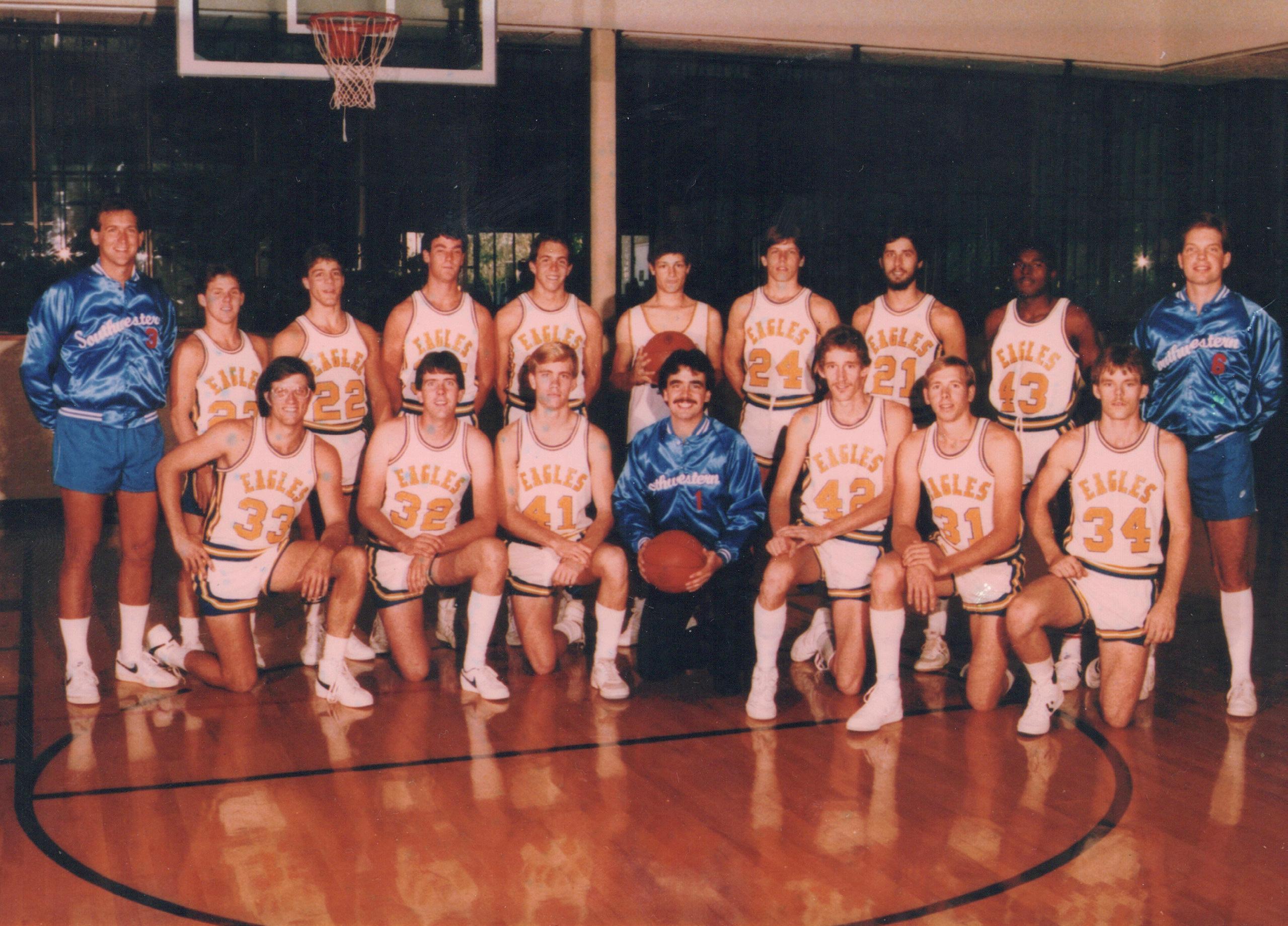
only other structure on campus was a permanent “temporary” cafeteria that doubled as the headquarters of the Music Department. A couple of trailers were scattered to provide more flexibility. There was a gravel field with a backstop they called a softball field, where a few blades of grass could be detected trying to grow if they could only find some water. The desert was winning the battle of preventing the campus from being a livable bastion of higher learning.
Cindy and I had agreed we would accept the first coaching job I was offered. But this certainly couldn’t qualify as a job, could it? Technically, paychecks should be associated with jobs, right? I decided to go ahead and agree to meet the president anyway.
Epilogue: After meeting with the President, Paul took what seemed like
a completely irrational leap-of-faith to coach a team of players with no real experience, no home court, and no team transportation. Against all odds, the 1985-86 Southwestern basketball team ended up with a winning record of 17 wins and 8 losses, earning a trip to the championship tournament for the National Association of Little Colleges.
That experience started Paul on his journey into coaching, ultimately leading to him serving as head coach of three NBA franchises, including the Phoenix Suns. He took the lessons of that first coaching season with him throughout his career. And most importantly, that season began a lifelong relationship with Southwestern College, now Arizona Christian University, where Paul served as a Trustee during the final six years of his life.


How four ACU students pursued their missional, vocational, and academic passions this past summer.
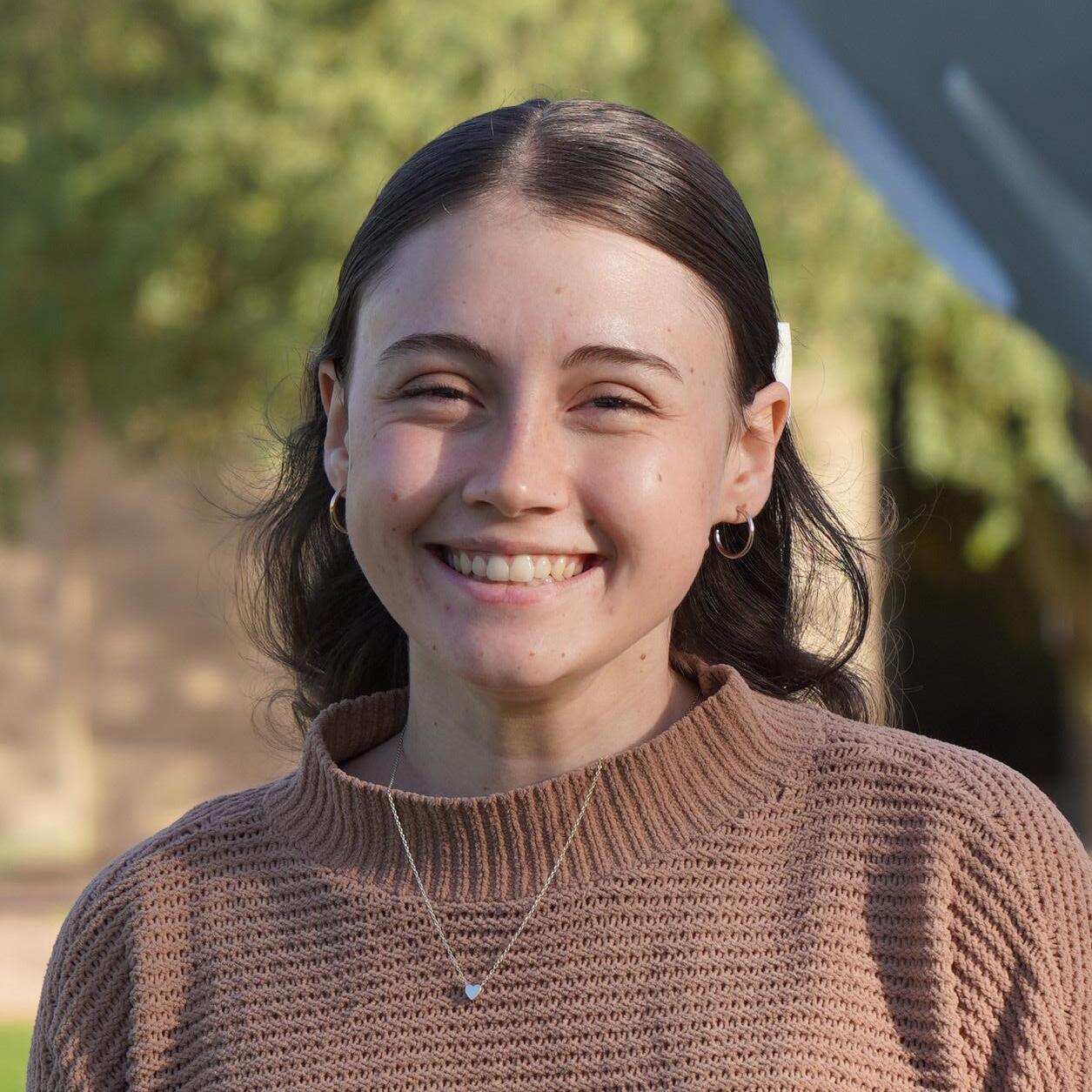
This summer I had the privilege of serving in Paris, France, with Athletes in Action . Our mission was to disciple and encourage athletes, coaches, and staff who were there for the 2024 Paris Olympics.
A team of 75 Athletes in Action staff members from 24 different countries, including my parents and me, came together for this project. On any given day, we would go out into the city or near the Olympic Village and look for opportunities to share the Gospel through the platform of sport.
One of my favorite experiences was seeing an AIA staff member from Colombia reconnect with an athlete in Paris who she had been discipling back home. She was able to provide the athlete with resources to share his faith, and as a result he led two of his teammates to Christ, empowered by the resources and the boldness he felt through the Holy Spirit.
This is just one of many stories of how the life-changing Gospel of Jesus Christ was spread during the Olympics. I am incredibly grateful for the opportunity to serve alongside my family on this mission trip. It truly opened my eyes to the universality of the Gospel across all cultures and languages.
I had the opportunity to work as a research intern for a pro-life not-for-profit organization called Voices for the Voiceless . In this role, I was able to research the impact of pro-mother workplace policies within small businesses in Arizona. I interviewed several companies, which gave insight on how employer support impacts the pro-life conversation.
I was also able to explore the life-altering moment a family receives a prenatal diagnosis. It was so evident that the words spoken and tone from the doctor during a prenatal diagnosis had a profound impact on parents and their decision whether to continue their pregnancy.
Abortion is one of those most controversial topics in society today, and I was blessed to work with an organization actively “transforming culture with truth” by proving to mothers that they are not alone, and that life is created on purpose. My internship showed me that work can be fulfilling, and that any work can be a ministry. No matter where you are, whether at a not-for-profit, a Fortune 500 company, a law office, a coffee shop, or a school, you are on a mission to share the beauty of God’s kingdom on earth as it is in heaven.

Editor’s Note: “Voices for the Voiceless” was founded by ACU graduate Josiah Friedman
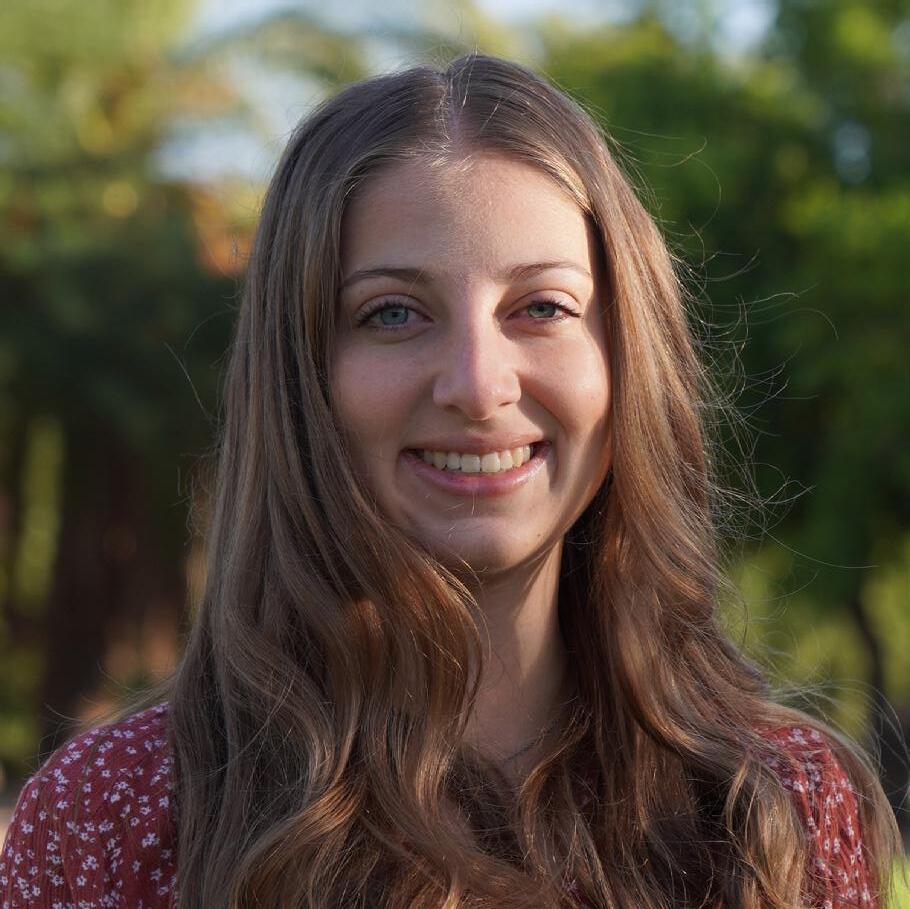
I was blessed to spend this summer in Washington, D.C. interning with The Fund for American Studies (TFAS) and working specifically in WORLD News Group’s Washington bureau (digital news). I spent my days working with a news team made up of members from across America to compose timely news pieces, and also worked with my supervisor on more indepth political articles. These projects allowed me to conduct multiple interviews, both with subject-matter experts and the everyday citizens who were protesting outside the Supreme Court. TFAS also allowed me to take two classes at George Mason University one in economics and the other in foreign policy and provided networking opportunities at the National Press Club, American Enterprise Institute, the Washington Examiner , along with other organizations. I am so thankful that I could work in and explore the field of journalism in our nation’s capital, and believe the experience will help me discern the field to which God may be calling me. I know that pursuing journalism as a Christian will come with challenges, but I am excited to see how God will use the skills he has given me for His glory and for my neighbor’s good.
As I was sitting 10 feet away from former Vice President Mike Pence as he was sharing his personal testimony, I couldn’t help but wonder, “How did I get here?” However, if you spend a summer interning on Capitol Hill in Washington D.C., this and other similar experiences eventually start to be considered normal.
I was privileged and blessed to serve as a congressional intern with Congresswoman Debbie Lesko for the 8th District of the State of Arizona. The purpose of my work on Capitol Hill was to serve the constituents of Arizona’s 8th District by listening to and recording opinion phone calls, as well as serving the legislative staff by facilitating introductions with businesses, organizations, and nonprofit entities.
Beneath the hustle of D.C. life, I felt a deep burden for people who do not know Jesus. My work as an intern was not to just to seek career opportunities, but to be a witness to others about Jesus. I used to view ACU’s mission of “Transforming Culture with Truth” as the big actions a person might take to transform the culture, such as work done by influential preachers Jonathan Edwards and George Whitfield in the early 18th Century American revival movements.
While serving in DC as an intern, I found that transformation often comes through little actions, such as buying a friend lunch to share Jesus with them or listening to someone share their story.
By the end of my time in DC, my question “How did I get here?” seemed to change to, “Why am I here?” I saw God move in my life in powerful ways and realized that He had called me to be a witness for His kingdom during the summer. As Mike Pence stated, “The servant leader always asks, ‘Where am I needed most?’” Coming back to ACU, I feel more prepared to be a servant leader in whatever vocation God calls me.
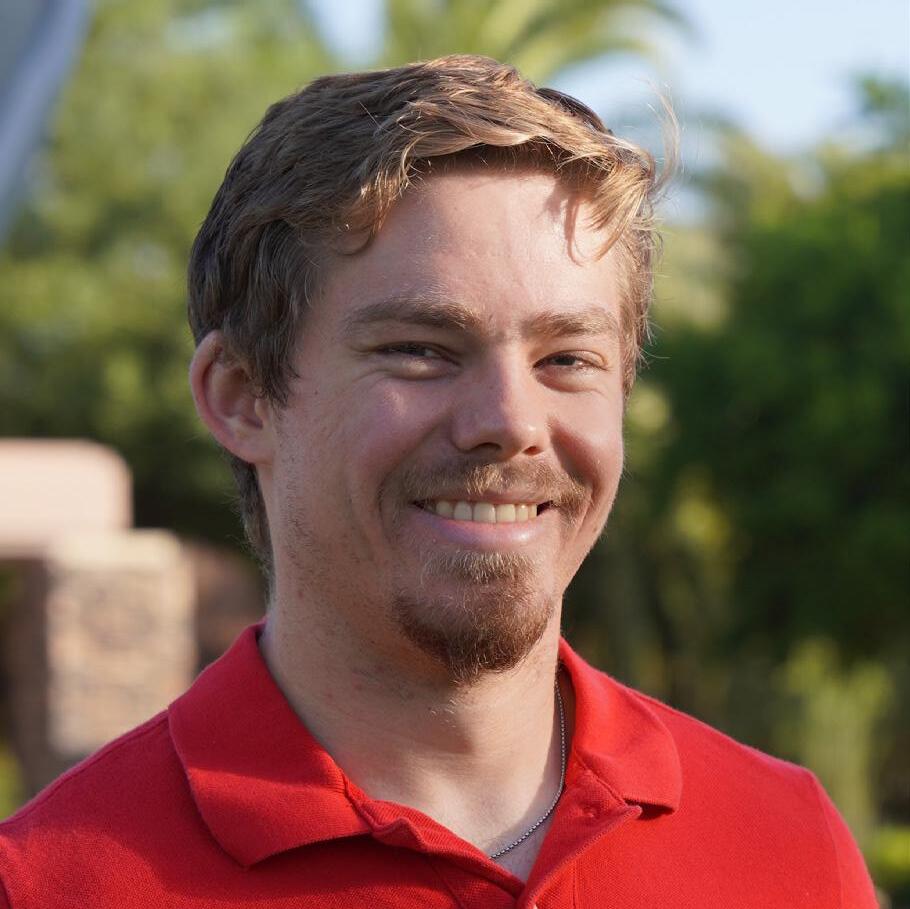


Courtney Pequin Junior Biology
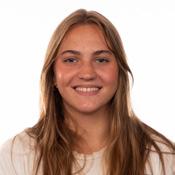

Kaesha Guillaume Junior Biology

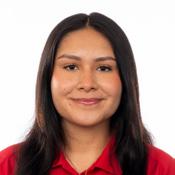
Brianda Vazquez Sophomore Business Administration / Management




Hugo Abril Penarando Sophomore Business Administration / Management France Noemie Antoine Senior Business Administration / Behavioral Health














Sarafina Nicholas Senior Elementary Education
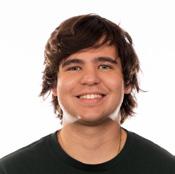
Enrico Roque Sophomore Business Administration / Marketing

Diego Mejia Freshman Business Administration













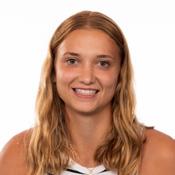




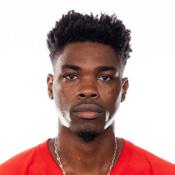
Vittoria Quadri Senior Business Administration
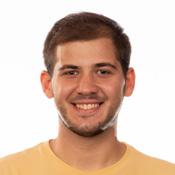


Kateryna Kashyrina Junior Political Science/ Criminal Justice

Renis Topi Sophomore Business Administration

Didier “Rick” Maganga Sophomore Business Administration/ Sport Management






Kadin Van der Lingen Senior Business Administration / Management








Fenosoa Rasendra Andrianantenaina Freshman Political Science


Manatap Sianturi Junior Music Education










While older generations reminisce about their college days filled with camaraderie and personal discovery, today’s students often confront a vastly different reality characterized by anxiety, depression, and a pervasive sense of isolation. Research indicates that more than half of college students frequently feel anxious or depressed, with alarming trends showing that these feelings are more pronounced among younger generations, particularly Gen Z and Millennials.
In fact, according to national research from Dr. George Barna and ACU’s Cultural Research Center, today’s college students—ages 18 to 24—are experiencing a mental health crisis of staggering proportions. Specifically, the research found that:
• More than half of college students (53%) admit to “often” feeling anxious, depressed,
fearful, unsafe.
• Students struggle with their sexual identity. Thirty percent claim to be LGBTQ (even though a maximum of 5% actually engage in LGTBQ relationships). The desire for acceptance or belonging might explain much of this trend, as expanding LGTBQ+ rights are a powerful generational symbol.
• Almost three-fourths (73%) of 18- to 24-year-olds say they lack meaning and purpose in their lives.
But the struggles run even deeper than these statistics suggest. For instance, while 8% of all adults experienced a major depressive episode in the past year, at least twice as many in Gen Z (19%) and Millennials (16%) report having such an incident. Similarly, although 5% of adults had serious suicidal thoughts
at least once in the past year, such thoughts occurred in much higher proportions within Gen Z (13%) and Millennials (9%).
So, what’s going on when it comes to the mental health of America’s college-aged adults? Much of it comes down to their worldview how they interpret and interact with the world around them. It informs their values and influences every decision they make. If an individual’s worldview is built on a faulty, unstable, or untrue foundation, this dramatically affects their mental health.
Younger adults are least likely to possess a biblical worldview, and they are far more likely to struggle with mental health issues. At its core, this spike in mental health struggles originates from young people’s increasing rejection of biblical principles as a foundation for making decisions, forming opinions, and behaving in day-to-day life.
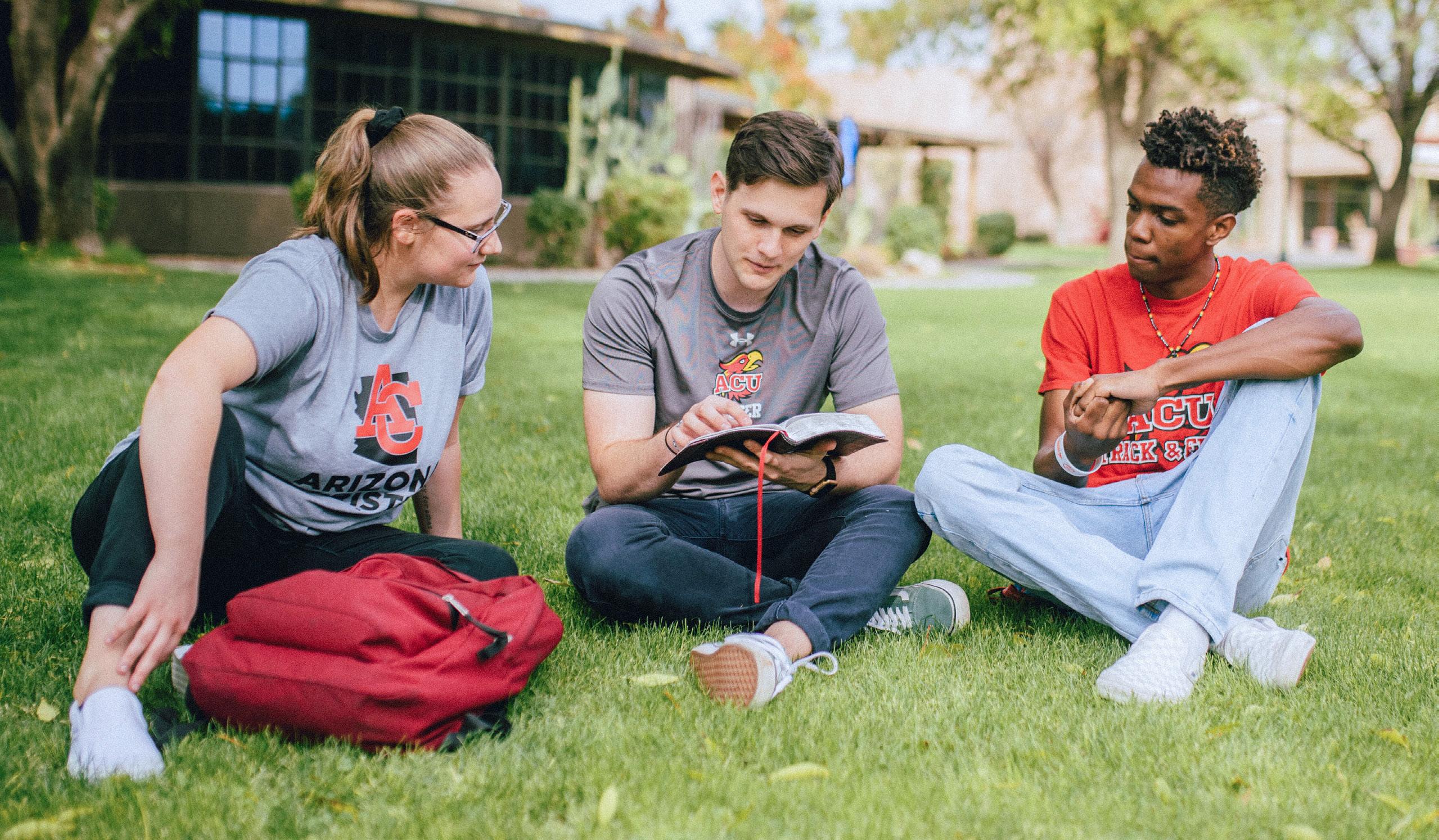
Consider these findings: A whopping 56% of Gen Z reported experiencing regular bouts of anxiety, depression, or crippling fear in the last year. It’s no coincidence that the data shows that only 1% of that generation has a biblical worldview. As for Millennials, about half (49%) reported these common mental health issues, and only 2% of that generation holds a biblical worldview. Among Gen X, 39% struggle with mental health issues while 4% possess a biblical worldview. In stark contrast, mental health issues are lowest—14%— among Baby Boomers (born 1946 to 1964), while that generation has the highest level of biblical worldview (8%).
The research indicates that most college students reject foundational biblical truths, such as belief in God as Creator, that the Bible is true and reliable, that absolute moral truth exists, that we are born into sin and need a Savior, and that purpose and success in life are found
in knowing, loving, and obeying God. Instead, they believe that moral truth is up to the individual—which leads to widespread acceptance of beliefs that undermine human flourishing. Their morally relativistic worldviews inevitably lead to feelings of debilitating pressure to conform; selfishness, competitiveness, and hopelessness; chaos and unpredictability; lack of trust and weak, unstable relationships; unsatisfying personal experiences; and the belief that they are never good enough. No wonder college students are plagued by feelings of fear, anxiety, and depression.
But here’s the good news:
happy and fulfilling, have longer lasting and happier marriages, have a clear sense of purpose, be satisfied with their relationships, receive strength from their religious faith, be forgiving of others, and regularly engage in serving others. And adults with a biblical worldview are less likely to feel anxious, depressed, or fearful, spend time in jail or in prison, be responsible for an abortion, succumb to an addiction, feel afraid to die, or experience a divorce.
Adults with a biblical worldview are more likely to describe their life as
Rather than embracing beliefs and behaviors that ultimately undermine their mental health, today’s college students can experience the myriad benefits of a life defined by a biblical worldview. And through its biblically integrated curriculum and on-campus mental health programs Arizona Christian University is proving to be an example for higher education institutions nationwide on how to address the college student mental health epidemic.

Most colleges and universities recognize the need to provide professional counseling services for their students, as we have done by establishing the Arizona Christian University Counseling Center. But our research shows that there are five key steps that colleges and universities can take to improve student mental health and help them flourish:
1. Build Community Colleges and universities can work to build a strong community around their students and focus on “doing life together.” The goal is to deeply connect students to one another, and with faculty and others on campus, to foster strong relationships for support, discipling, and mentoring.
2. Purpose
Recognizing that three-fourths of 18- to 24-year-olds struggle with meaning and purpose, colleges and universities can help students discover God’s unique calling for their life—and begin that process
as soon as they get to campus. At ACU, we do this throughout the student’s time at the university, beginning with the freshman “Calling & Purpose Statement” in their LIA courses and culminating in a similar “Calling & Purpose Statement” assignment in their Senior Capstone.
3. Identity
Knowing that college students struggle with their identity, colleges and universities can affirm and encourage students to anchor their identity in Jesus Christ. College is an ideal time to help students solidify a biblical understanding of their identity by deepening their relationship with God and anchoring their selfworth in the eternal principles found in scripture rather than the ephemeral, counterfeit values popularized by the culture.
4. Build Worldview Colleges and universities can strategically teach biblical worldview—and measure how
they are doing in these efforts. This is a hallmark of the ACU educational experience. We are strategic in helping students build and refine their biblical worldview through academics, athletics, spiritual life, service projects, and extracurricular activities. And we objectively measure their worldview along the way through our one-of-a-kind Student Worldview Inventory, specifically created by Dr. Barna for use at ACU.
5. Reliance of God
Finally, Christian colleges and universities are uniquely positioned to help their students develop a deep trust and reliance on God that will last a lifetime. ACU does this by providing a biblically integrated worldview curriculum, a rich spiritual life of learning, worship, and prayer on campus, opportunities to develop authentic, Godly relationships, and by always encouraging students to go deeper with God in all areas of life.
Robby Lashua has served as an apologist and content creator at Stand to Reason for the past three years. Starting in January 2025, Robby will begin his next chapter in ministry by serving as the lead pastor at Palmcroft Church in Phoenix, AZ.
Having earned his bachelor’s degree from Arizona Christian University (2006), an M.Div. from Phoenix Seminary, and an M.A. in Christian Apologetics from Biola University, Robby has a passion for equipping the church with compelling reasons to believe in classical Christianity.
He is also an Adjunct Professor at Arizona Christian University and Grace School of Theology. Formerly, Robby was the Pastor of Apologetics at Desert Springs Community Church in Goodyear, AZ, as well as an Associate Professor at Mission Bible Institute and host of the weekly apologetics podcast, Christ, Culture, & Coffee .
“When I was a student at ACU, I could never have imagined the exciting life of ministry the Lord had in store for me,” Robby stated. “When we’re faithful to the Lord, He allows us to take part in His mission around the world.”
Robby has been a husband to Kelly for more than 11 years. They are raising four amazing kids, Greta, Cohen, Elsie, and Jesse.
Jared enrolled at Southwestern College, now Arizona Christian University, in the Fall of 2000 and was a member of the Men’s Basketball team from 2000 through 2004. He graduated in 2005 with his Bachelor of Science in Business Administration and credits his time at ACU for helping him grow in his faith and prepare him for a career as a business owner.
In 2010, Jared and his wife, Camilla, decided to create a better way to buy and sell memorabilia. What started as a hobby in their spare bedroom has now turned into a thriving business. Pristine Auction, an online auction company that specializes in authentic, autographed memorabilia, cards, coins, arts, and collectibles and now has more than 100 team members and two state-of-the art facilities spanning more than 60,000 square feet.
Jared and Camilla are intentional about operating their business in a manner that honors God, families, and their customers. He was honored at Homecoming this year as Arizona Christian University’s 2024 Outstanding Alumni for his personal, professional, and spiritual contributions to the community.
Jared considers being a husband and father as his greatest accomplishment, and he and Camilla have three sons, Bentley (14), Hudson (9) and Cooper (4).
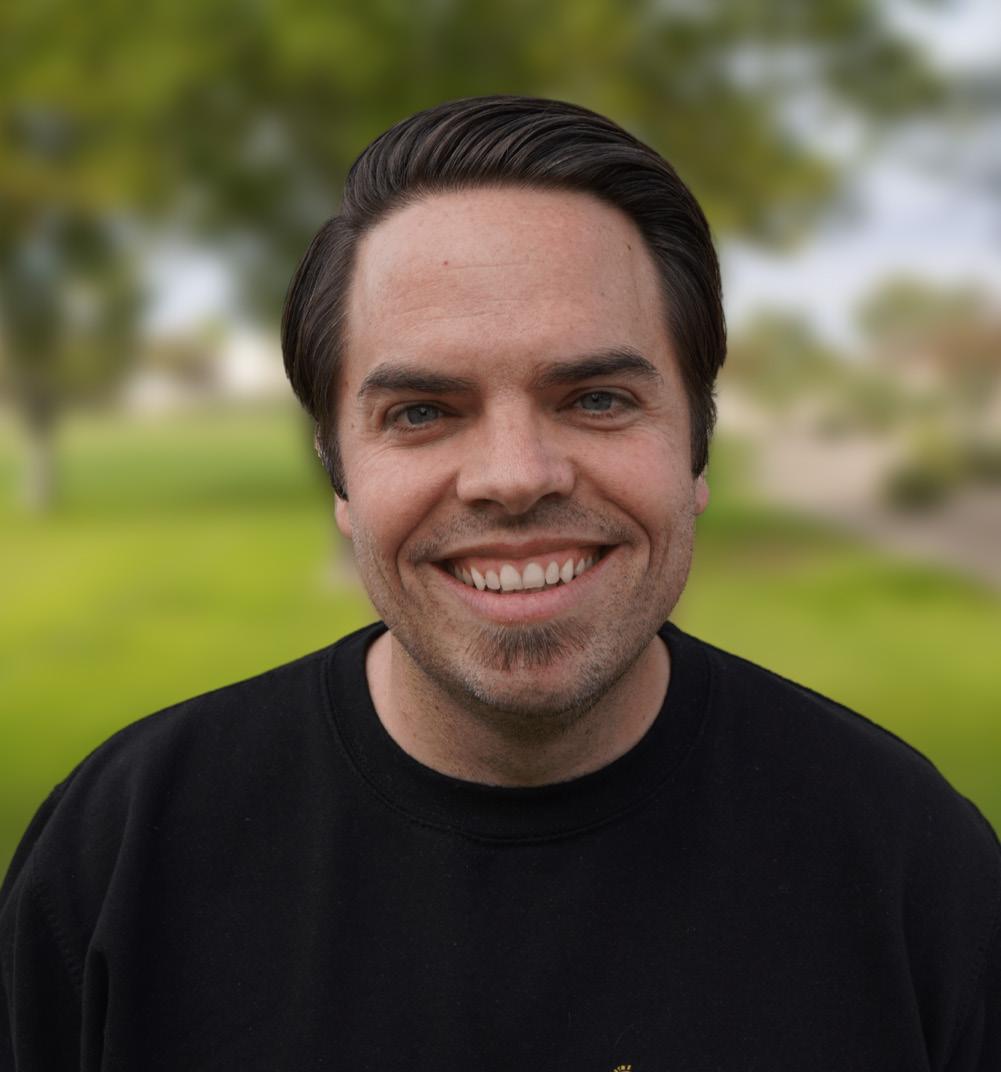

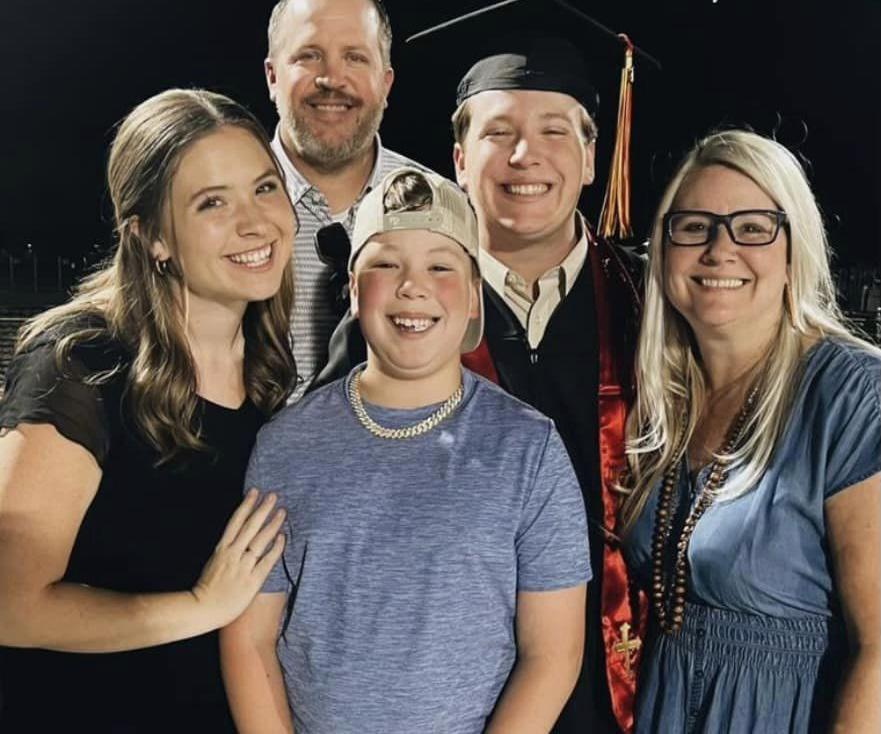
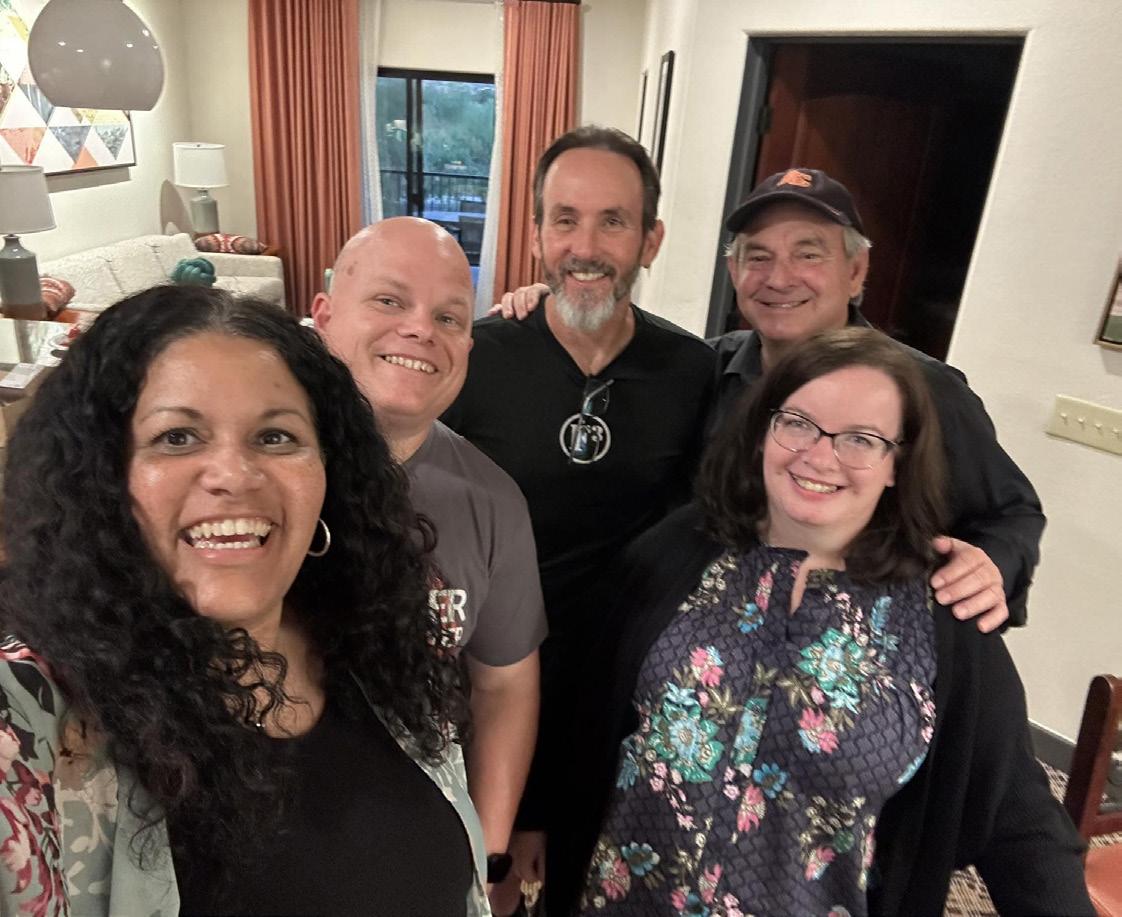
1. BRAD (‘00) AND SARAH (DALTON, ‘98) attended the May 2024 commencement ceremony to celebrate their son, new ACU Alum, Dalton, who is completing his Bachelor of Science in Music with a concentration in Music Technology. Their daughter, Macy, is a current ACU student with a double major in music and psychology. We are keeping our fingers crossed that younger brother, Charlie, becomes part of the Firestorm Family as well. Not pictured is their son Elliott, who attends college in Texas.
2. TONYA BROWN GAMBLE DAOUST (ATTD ‘97), KENDRA MCCLEERY (‘97) AND JEREMY STEPHENSON (2000), SWC alums, and Jeremy’s wife Heather (not pictured), spent some time with Tim Reed.
3
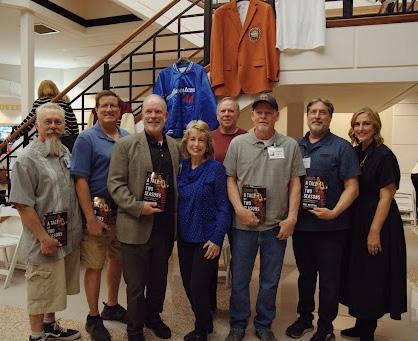
4

3. THE SOUTHWESTERN COLLEGE Men’s Basketball alumni, the first team that Paul Westphal coached at SWC, gathered to celebrate the release of Westphal’s book, “A Tale of Two Teams”. Pictured left to right: DANIEL COYLE , JEFF NIMTZ , KEITH PROVINCE , Westphal’s widow, Cindy Westphal, WALT ROCK , DANIEL DERUITER , WAYNE JONES , and Westphal’s daughter, Tori Westphal Higa.
4. PASTOR TIM REED visited with ACU alums that help make up Stewardship, a team of real estate, home loan, insurance, and financial advisors. Pictured with Tim is Stewardship Founder, GRANT BOTMA (‘06) , MARSHALL TAGUE (‘04) Stewardship Referral Manager, BRANDON REAM (‘06) Insurance Advisor and Co-Founder of Stewardship Insurance, and BRIAN REAM (‘10) Certified Financial Planner Professional.
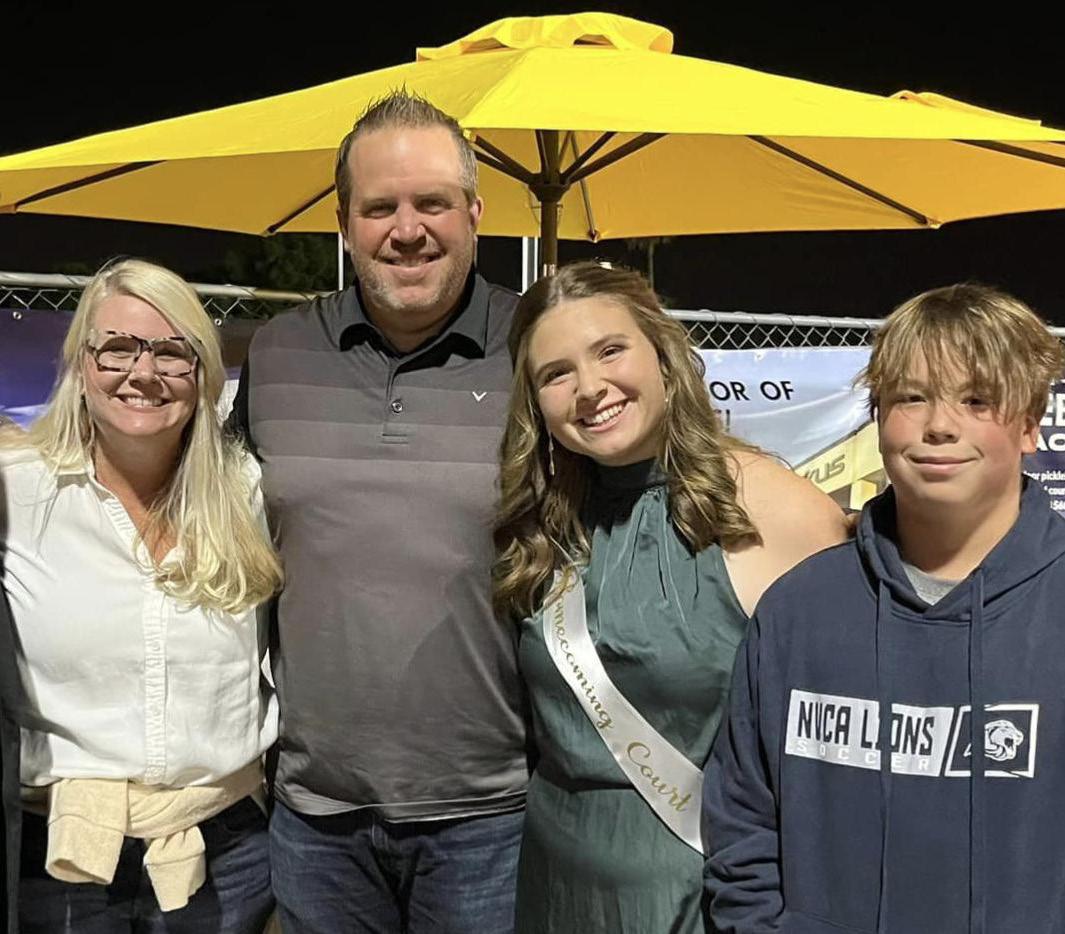
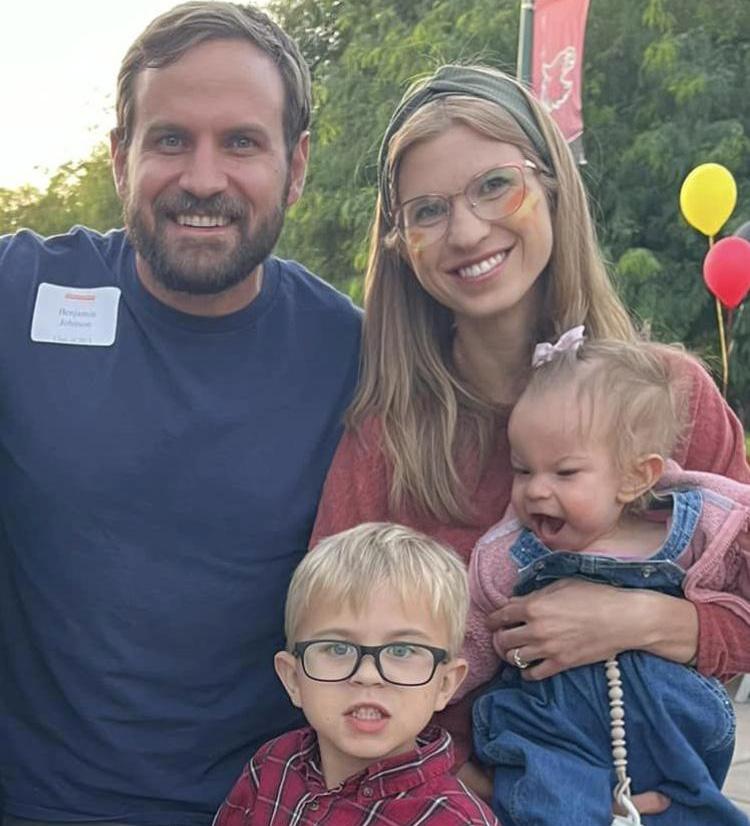
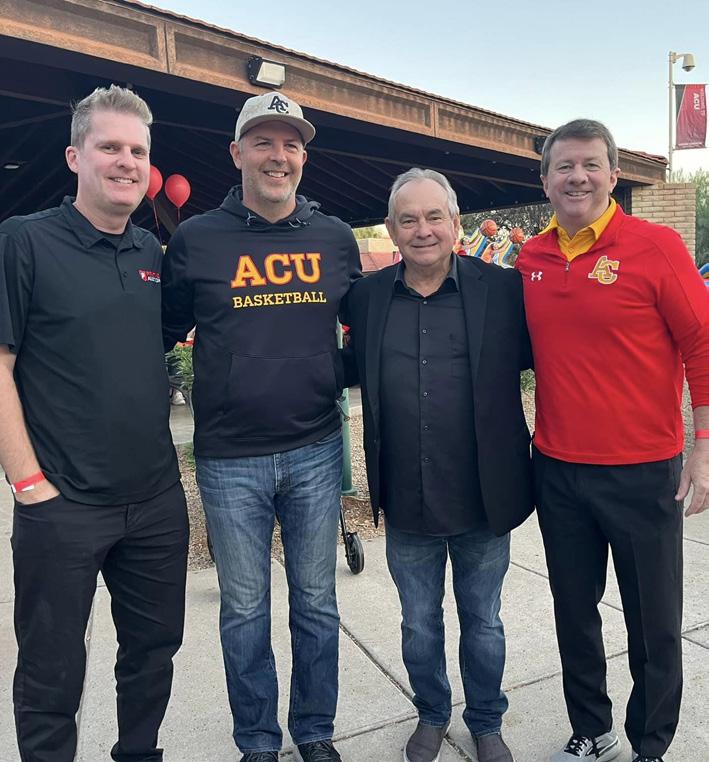
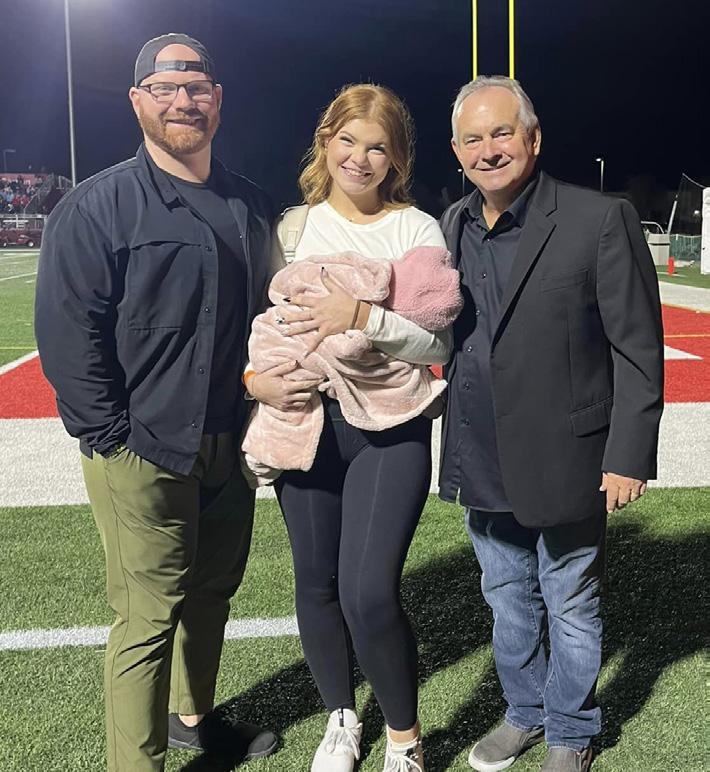
1. SPANGLER HOMECOMING Brad (‘00) and Sarah (Dalton, ‘98) Spanger celebrated their daughter, and current student Macy, who was part of the 2024 Homecoming Court, pictured with her brother Charlie.
2. BASKETBALL HOMECOMING Our 2024 Outstanding Alumni, Jared Kavlie, a 2005 graduate of ACU and former member of the Men’s Basketball team, celebrated Homecoming festivities with Men’s Basketball Coach Jeff Rutter, Pastor Tim Reed, and President Len Munsil.
3. HOMECOMING REED FAMILY ACU dedicated the Tim Reed Study Lounge inside the Tower on campus to honor Pastor Tim Reed for his 35+ years of service to ACU. Tim is pictured with his wife, Dixie, son, TJ (‘12) and Future Firestorm, grandson, Ira.
6. STANLEY HOMECOMING Bryan (‘07) and wife, Jaime (Johnson, attd) Stanley spent some time with Tim Reed at Homecoming. Bryan is the Assistant Dean of Students & Director of Residence Life at ACU. 1 4 2 5 3 6
4. JOHNSON HOMECOMING Dr. Benjamin (‘13) and
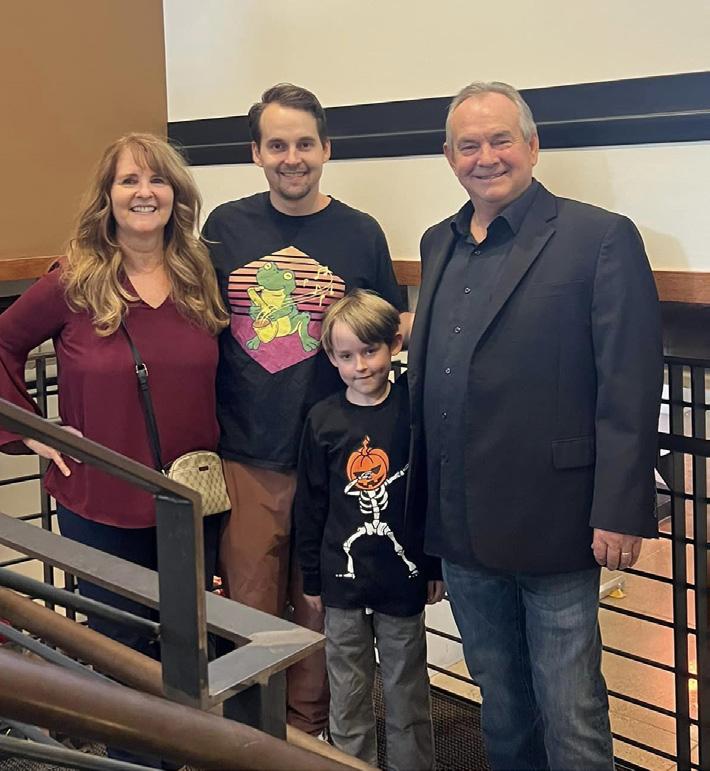

Brenna (Franks, Fall ‘14) Johnson came back to campus to celebrate Homecoming with children, Benaiah and Brielle.
5. BOWEN HOMECOMING Tim Reed caught up with siblings, Brennan (‘16) and Hannah (‘22) Bowen at Homecoming. Brennan is a former ACU football player and is currently an Associate with Holtzman Vogel law firm. Hannah is a former member of both the ACU Beach Volleyball and dance team. Both are the children of ACU Head Football Coach, Jeff Bowen.
ABIGAIL BRELAND (‘24) is a banquet server with Benedict’s Catering.
DOMINIC GONZALES (‘24) and KIRSTEN RASMUSSEN (‘24) got engaged on September 14, 2024, and are getting married next spring. Dom is pursuing his Masters at ACU while finishing up his last year playing basketball for the Firestorm and Kirsten is pursuing her Masters in Counseling.

CHRIS BECK (‘23) is a Project Manager for Constructed Matter, a full-service design and build firm in Scottsdale, AZ, and married CEAIRRA (BOWMAN, ‘22) (pictured below). CeAirra taught biology for a year and recently began her Masters Degree in Physician Assistant Studies at NAU. They live in New River with their Australian Shepherd puppy, Copper.

KARLIE RIMAT (‘23) has been working as a Crisis Counselor with Volunteers of America in Western Washington for the last year. God also blessed her with a son, who turns one this fall.

BILLY CARTER (‘23) and KOURTNEY BRUNER (‘24) were married in May 2024 at Sahuaro Ranch Park. The Carters are both teaching this year and are very involved in their schools. Billy is also coaching high school football at Centennial High in Peoria, AZ, and Kourtney is leading an elementary worship club.
XAVIER WATKINS (‘22) is an Investment Advisor with Equitable Advisors in Scottsdale.
QUIXMIA WASHINGTON (‘21) recently took on a teaching position at Heartlife Church teaching in the children’s ministry under fellow ACU alumni, Tony Paleo (‘04) and ACU adjunct professor, Michelle Paleo. She is truly in awe of how God has used ACU connections to open up new opportunities to bless her and use her gifts and talents to further His Kingdom. Q is currently working on her Master’s in elementary education at ACU to become a special education teacher. She also found her church home at NPHX in Phoenix and has grown tremendously in her faith. Q is excited to see what else God has in store for her!
BAYLOR GIANNINI (‘20) is the head baseball coach for the American Leadership Academy - West Foothills in Waddell. Baylor is also an Assistant Coach and Pitching Coordinator for Ottawa University. After graduating from ACU, Baylor pitched in Canada with the Regina Red Sox.

BRENT SMITH married his wife, Abigail, on November 18, 2023. Brent is the Director of Student Engagement at ACU and Abigail is the Founder of EA Society.
TANNER HILTON (‘19) and his wife, Lindsey, married in June 2024.

MATT (‘19) and JENNA (CASTILLEJA, ‘19) MARA welcomed their first child, son JJ, on Father’s Day this year. They are enjoying every moment of parenthood together!
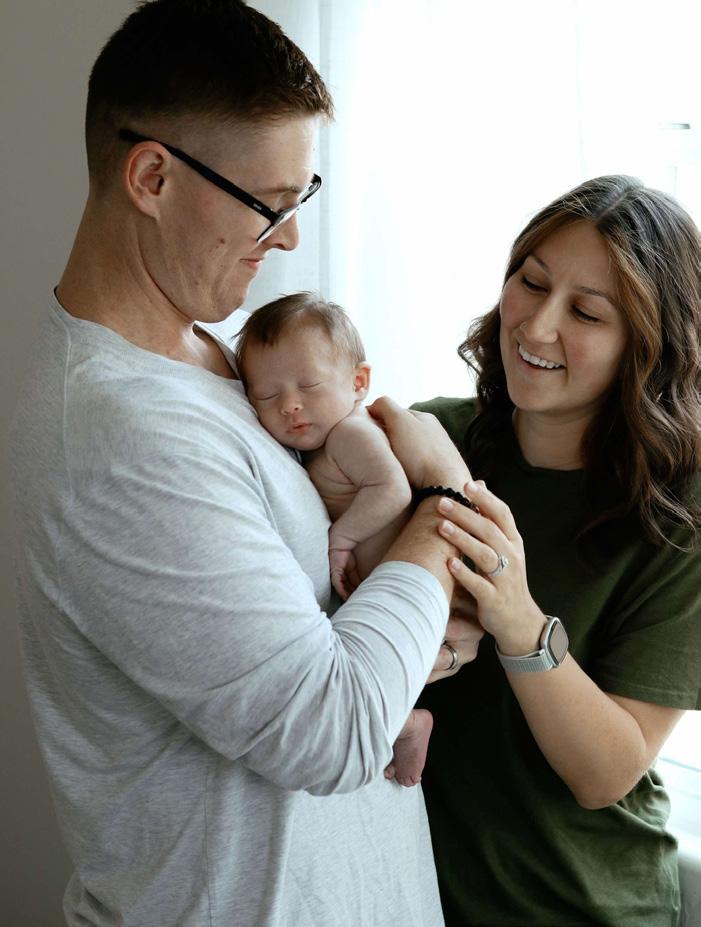
DILLON EAVES (ATTD ‘18) is the Dean of Discipline at Scottsdale Christian Academy. He also serves as the Elementary School Sports Coordinator, Middle School Varsity baseball coach, and the High School Varsity baseball coach. His wife, SARAH (MOSSMAN, ‘20) , teaches science for the middle school at SCA. Sarah will also be coaching middle and high school swimming. The Eaves attend Scottsdale Bible Church.
NICK (‘18) and TESIA (SWAYDAN, ‘15) NORTON welcomed their first child, daughter Lydia Ann, on June 13, 2024. They are so grateful for this new addition to their family!

JONATHAN NUNNALLY (‘18) and his wife, Taylor, welcomed their first child, daughter Ryann Sedona in July.

KAI “KC” DAVIS (ATTD ‘17) is a baseball coach at Desert Mountain High School in Scottsdale.
CHELSEA (FREWIN) DUBOVOY (‘17) works in sales at Minot Lumber and Hardware in North Dakota.
RYAN (ATTD) and SAMATHAN (MCCANTS, ‘17) JONES welcomed their first child, Miller “Millie” Jean in March 2024.

SETH (‘17) and LAURYN (SULLINS, ‘17) MOORE live in Yukon, Oklahoma, where Seth is a Teaching Pro at the Oklahoma City Tennis Center and Lauryn teaches for the Yukon Public School System.
KAILAA (HEANEY, ‘16) LEVINE’S wedding rental business, I Do Rentals AZ, was voted “Best Rentals” for Arizona Bride: Best of 2024. Kailaa was presented her award at the Best of 2024 Awards Gala on June 5.

MELISSA RIVERA (‘15) married Nick Allen on August 19, 2023. Melissa is a Behavioral Health Manager at Avance Care and the couple resides in Raleigh, North Carolina.

IAN HYLAND (ATTD ‘14) married Jenna Hart on March 30, 2024.

DAVID HERNANDEZ (‘13) is the Executive Ministry Pastor for Awaken Church in Las Vegas.
EMILY TALARICO (‘13) married Adam Dixon in September. Pastor Tim Reed prayed over the couple and their new life together on their special day. Emily is a Kindergarten Teacher at Desert Mirage Elementary School.

TYLER BROWN (‘12) MD, FAAP, is a pediatric cardiac intensivist at Phoenix Children’s Hospital. After graduating from ACU he earned his medical degree from Loma Linda School of Medicine in California and completed his residency training in pediatrics at the University of Utah and Primary Children’s Hospital in Salt Lake City. He continued his medical training with a fellowship in pediatric cardiology at Cincinnati Children’s Hospital Medical Center, where he served as chief fellow. He also completed a fellowship in pediatric critical care at the University of Washington and Seattle Children’s Hospital. We are excited to have Dr. Brown back in the Valley.

LARRY CARMICHAEL (‘12) is a Corps Officer at The Salvation Army of Napa. He married the love of his life, Gloria, on July 1, 2024.
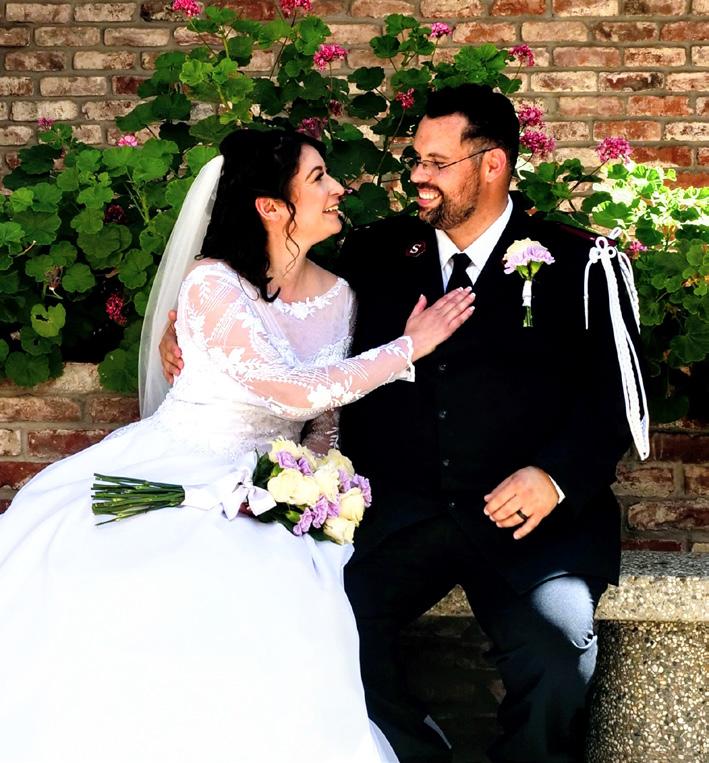
JOSH COLE (‘12) is the Head Varsity Men’s Basketball Coach at Sandra Day O’Connor High School. His wife JESSICA (SMITH)(‘12) also graduated from ACU.
T.J. REED (‘12) is the Senior Director of Housing Solutions at Solari, Inc.: Crisis & Human Services.
WILLIAM “BILL” LEPOVETSKY (‘11) passed away unexpectedly on May 15, 2024. He was employed with Aurora Behavioral Health for over 12 years, and had found a calling in helping others who were less fortunate, from assisting at homeless shelters to his mission trip to Estonia, where he helped build housing.
MELISSA MAIDEN (‘10) is a personal development coach in Laguna Beach, California.
BRIAN REAM (‘10) is a Certified Financial Planner Professional with Stewardship, headquartered in Gilbert, AZ. He married his beautiful wife, Heather, in 2015 and they have two boys, Chase and Hudson.
LORIE SIROLA (‘09) is a Licensed Professional Counselor and a Licensed Independent Substance Abuse Counselor with a certificate of advanced studies in trauma, abuse and deprivation. She is the owner and psychotherapist at Healing Waters Counseling LLC.
MATT ROBARDS (‘09) is the pastor at Resurrection Lutheran Church in Scottsdale. He married his high school sweetheart, Aubrea, in 2009 and they have four children. Matt is working on completing his doctorate in Ministry from the Masters Seminary.
JACK FARRIS (‘08) is a sales manager for Logos Bible Software. His wife JENNY (BEBOW)(‘07) is a graduate of ACU.
JAKE NORTON (‘08) is an Investment Advisor and the Co-Founder of Stewardship.
BRYAN STANLEY (‘07) serves as the Assistant Dean of Students and Director of Residence Life at ACU. His wife, Jaime (Johnson) also attended ACU.
MIKE SZORADI (‘07) is the Family Life Pastor at Compass Church in Goodyear.
MICHAEL ZINS (‘07) is the Vice President of Private Money Lending and Home Loan Advisor for Investor clients at Stewardship.
JEREMIAH HANN (‘07) is the Director of Development and Operations for West Valley Christian School in Goodyear. His wife AMBER (MOLLERUP, ‘09) is also very very involved at WVCS and they have opened up their family to foster children.
MATTHEW CURTIS (‘06) is the Family Ministry Pastor at Highlands Church in Scottsdale. His wife, SHAYLA (‘06) , is also a graduate of ACU.
MAEGAN KEARNS (‘06) spent 12 years teaching English in China with Pinnacle Teaching Solutions. She is now heading to Morocco.
DERIC MILLER (‘06) is the owner of Deric Miller Photography. His wife, Jessica (Kennedy, ‘05), is also an ACU grad.
BRANDON REAM (‘06) is an Insurance Advisor and Co-Founder of Stewardship. His wife, CHRISTINE (ZINS)(‘06) , is also a graduate of ACU and homeschools their three sons.

GRANT BOTMA (‘05) began Stewardship as a mortgage brokerage more than 15 years ago in Gilbert, AZ. Over time, he and his team saw a need in their community for additional financial services, which
led them to expand into insurance and financial planning. Stewardship has become a trusted part of its community, with thousands of fivestar reviews and recognition as a two-time recipient of the Inc. 5000 Fastest Growing Company award. After writing two bestsellers—*The Problem Isn’t Their Paycheck* and *Work-Life Harmony*—Grant is now working alongside his business partner and fellow ACU alum, Jake Norton (‘08), to help Jake write his first book on the subject of caring for aging parents. Grant and his wife are still involved in youth ministry at their church, Sun Valley Community Church, and have recently taken on a new role—serving on the board of EVAC (East Valley Athletes for Christ). EVAC is a sports organization for Christian homeschoolers, giving these athletes a chance to compete in interscholastic sports.
MARSHALL TAGUE (‘04) serves as the Referral Manager for Stewardship.

HOLLY (SMOLENSKI) RAHN (‘04) is teaching third grade at Black Mountain Elementary School in Cave Creek, AZ. Holly and her husband, Josh, who is an associate pastor at Reclaim Church, have two children in 9th and 6th grade. The Rahns have been active in full-time church ministry for the past 20 years.
MARCUS MILAM (‘02) is the Associate Director of Public Affairs at Echo Canyon Consulting and will be starting law school at Arizona State University.
JAIMEE DRAPER (‘00) and her husband, Jason, serve at Royal Palms Baptist Church in Phoenix where he is the pastor.
SCOTT and CARLA BROWNSON (‘99) both 1999 graduates, serve at Clydehurst Christian Ranch in Montana. Scott is the Director of Development and Outreach at the ranch and has written and recorded several songs that you can find at scottbrownson.com. Carla runs Maple Moose Coffee & Pop Shop at the ranch.
LOYCE COLLINS (’92) is a retired Chaplain from the Arizona Department of Corrections. He and his wife, Barbara, have been married for 22 years. The Collins are members of Pilgrim Rest Baptist Church in Phoenix, AZ. Loyce is also a published author, having written “A Commentary On The Book of James In The New Testament, “ which is available at Amazon, Barnes and Noble, Walmart and on Kindle. WE WANT TO HEAR FROM YOU!
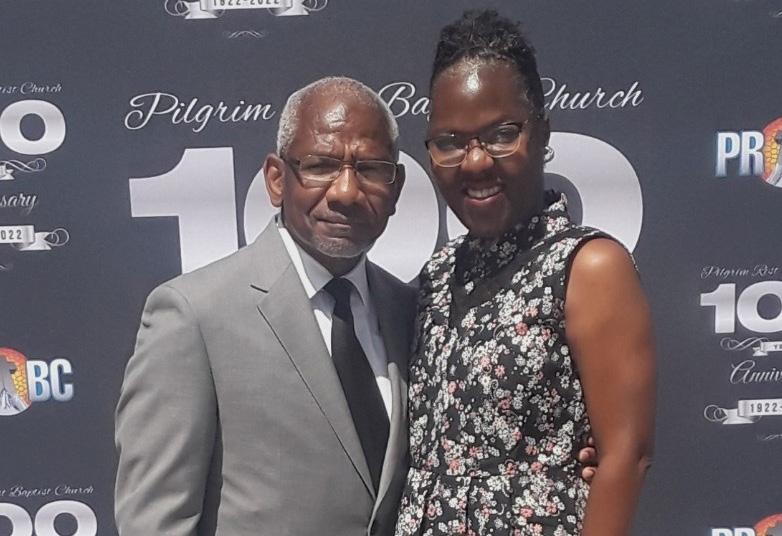
Update us at www.arizonachristian. edu/update/ or open your mobile phone’s camera app and hover over the QR code.


by partnering with ACU
For information on how you can leave a legacy through an estate gift to ACU, contact Christopher Studenka at 602-489-5300 x2513.
Honoring those who give $1,000 or more annually to Arizona Christian University.
Recognizing those who give monthly to Arizona Christian University.